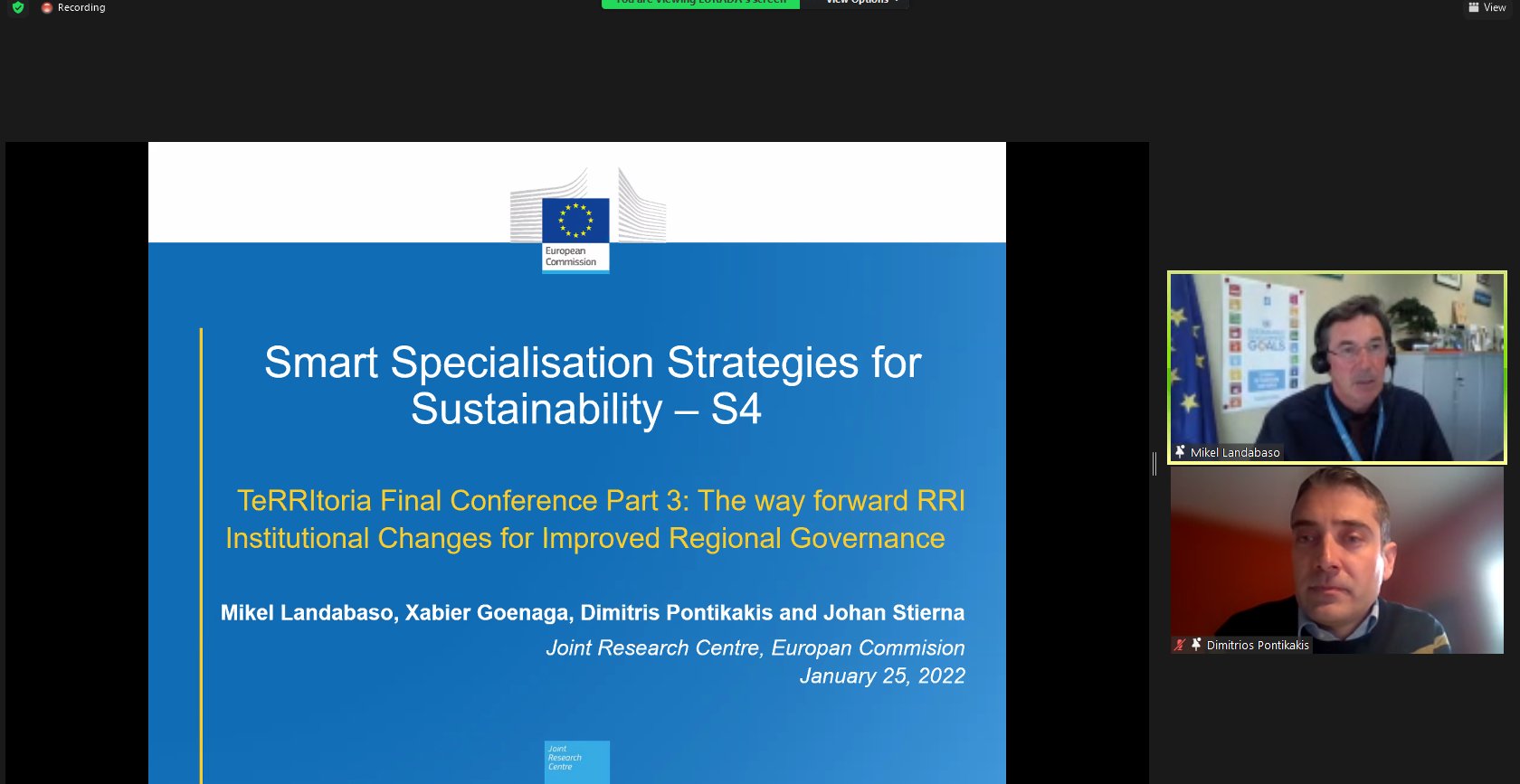Two of the most common problems and related criticisms of the Regional Smart Specialisation development process are that a) it can be highjacked by entities/individuals with strong agendas and influence at a local/regional level (i.e. a dominant industry cluster or a major research institute) and b) it often is a consultation among experts, detached from the concerns of citizens and society. A third and more subtle critique questions the validity of the RIS3 “priority setting” in a region when, as it happens quite often, only the current situation (be that the current R&I and production capacities or the current pool of R&I experts) is taken into account, thus “ignoring” future challenges and opportunities as well as positive externalities. It is not very important whether this critique is justified or not. It does point though to the same kind of problems that science faces on a global scale and that Responsible Research and Innovation tries to address, namely: how to involve society in the discussion and decision-making on Science, Research and Innovation; how to use science to tackle major societal problems (from poverty to inequality, climate change, etc) and how to address concerns regarding developments such as globalisation, social media connectivity, privacy, decreasing authority of science, and so on.
The introduction of the RRI keys and the RRI dimensions on the cycle of RIS3 (design – implementation – monitoring and evaluation) can offer some valuable insights on how Smart Specialisation can be more inclusive and responsive to current and future societal challenges. More specifically, by focusing the RIS3 process on the RRI keys:
- RIS3 can use Open Access and Open Science concepts to promote Open Data and Open Innovation in a given region, thus leading to enhanced entrepreneurial activity and innovation;
- Ethics and Gender dimensions allow all available human capacity to be considered and its potential to be realised, while ensuring that citizens view the development of innovative products and services with trust;
- Public Engagement and Science Education can offer a way to multiply the R&I capacity of a region by employing its citizens (citizen science) and cultivating its future scientists, researchers, and innovators (science education);
- Finally, innovative Governance arrangements that focus especially on citizens’ active participation can offer a way to increased engagement ensuring buy-in from both enterprises and citizens working together towards a better R&I development model.
The RIS3 cycle can also benefit by the introduction of the RRI dimensions in the RIS3 process:
- Anticipation is indeed quite important, especially at the design phase, as it can ensure that RIS3 is able to go beyond the “conventional, business as usual” approaches by anticipating future developments and sustainable developmental opportunities;
- By introducing elements of Reflexivity, local entrepreneurial and scientific actors can understand better their own needs, aspirations, and limits as well as those of the society they serve;
- Inclusiveness ensures that all local capacities (entrepreneurial, scientific, societal) are included in all the phases of the RIS3 cycle with special emphasis on the inception/design phase.
- Finally, Responsiveness can guarantee that all economic, environmental or societal opportunities and risks involved in new technologies are understood and managed in a socially efficient way.
Now that the first phase of RIS3 comes to a conclusion and regions, countries and the EU are getting ready for a second phase, it is important to recognise the results achieved and to strive for RIS3 enhanced with active citizen participation and due attention to realising the full potential of each region to address major societal challenges. RRI Keys and dimensions can be instrumental in this effort.
 | Article written by Nikos Zaharis – SEERC. Nikos Zaharis is the Director of the South East European Research Centre. He works on projects focusing on science, research and innovation policy, regional development and entrepreneurship. |





